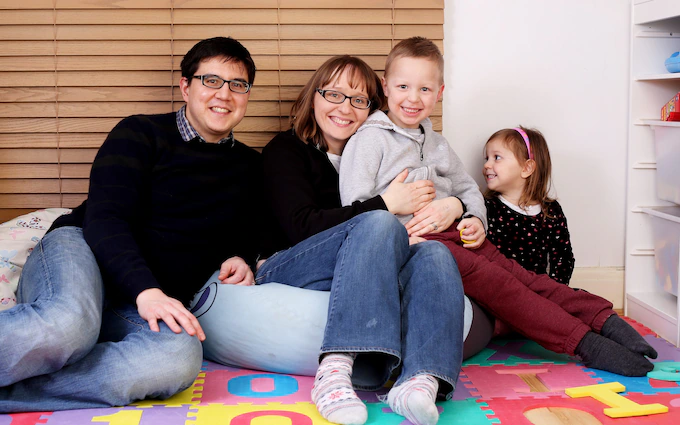In the ever-evolving landscape of autism research, our understanding of the condition deepens with each passing day. One crucial aspect that has captured the spotlight is the role of parents in the development of autism spectrum disorder (ASD). While environmental factors undoubtedly play a part, recent studies shed light on the prevalence of genetic mutations, with a surprising emphasis on the paternal contribution to the inheritance of autism.

Unravelling the Genetic Threads
As we delve into the intricate web of autism etiology, genetic factors emerge as key players. Contrary to earlier beliefs about maternal transmission, contemporary research points towards the father’s genetic makeup as a significant influencer. Genetic mutations, it seems, are the common culprits in the development of autism, opening up new avenues for understanding the origins of this complex condition.
Parental Partnership: Learning and Growing Together
Amid the uncertainties surrounding the direct cause of autism, parents can take an active role in supporting their children. The first step is to embark on a mutual learning and growth journey. By working alongside our children, we can foster a deeper understanding of autism and empower ourselves with knowledge to navigate the challenges that may arise.
Frequently Asked Questions
Q: Inheriting Autism – Mother or Father?
A: Recent studies challenge previous notions about maternal transmission, revealing that autism genes are more commonly inherited from the father. This revelation marks a significant stride in comprehending the roots of the condition.
Q: Two Autistic Parents, One Neurotypical Child?
A: Research suggests that when autistic parents carry different genetic variations associated with autism, the likelihood of having a neurotypical child increases. The interplay of diverse genetic factors contributes to the outcomes in offspring.
Q: Unravelling the Causes of Autism?
A: Autism spectrum disorder is a multifaceted condition with no singular cause. A blend of environmental, biological, and genetic elements converges to influence the probability of a child developing ASD.
Q: Autism without Parental Inheritance?
A: Autism can stem from genetic factors not passed down by parents, involving spontaneous changes in a child’s genes that were not present in their progenitors. Such genetic causes often target specific genes or regions on a chromosome.
Q: Family Planning for Parents of Autistic Children?
A: Recent studies propose a strategic approach for mothers of children with ASD. Planning a second pregnancy to occur 2.5 to 3 years after the birth of a child with autism may lower the chances of having another child with ASD.
A Collective Journey

As we continue to unravel the complexities of autism, it becomes evident that both genetic and environmental factors contribute to the intricate tapestry of this condition. Parents, armed with knowledge and a collaborative spirit, can play a pivotal role in supporting their children on the autism spectrum. In this collective journey of discovery, each new piece of information brings us closer to understanding and embracing the diverse facets of autism.
